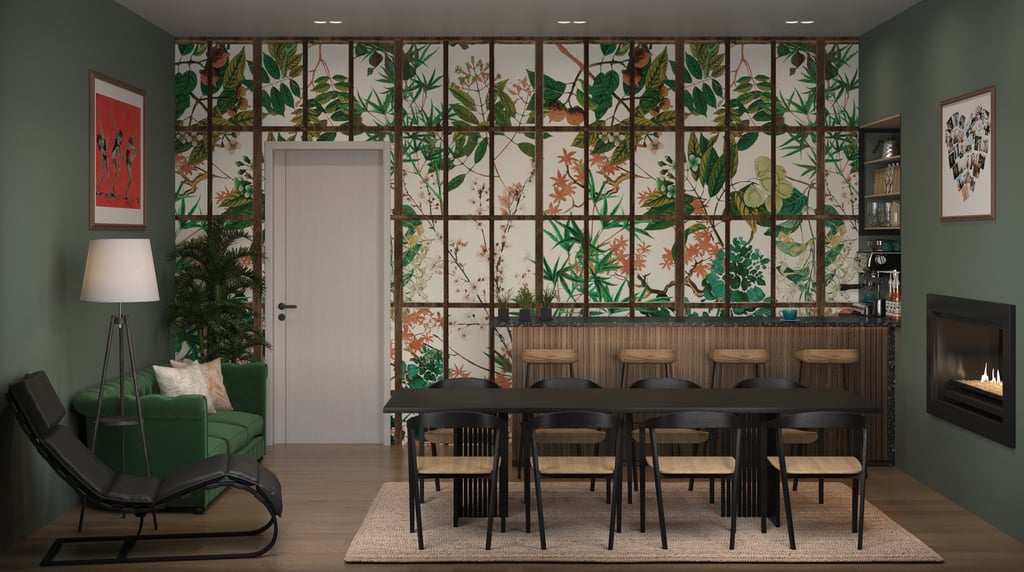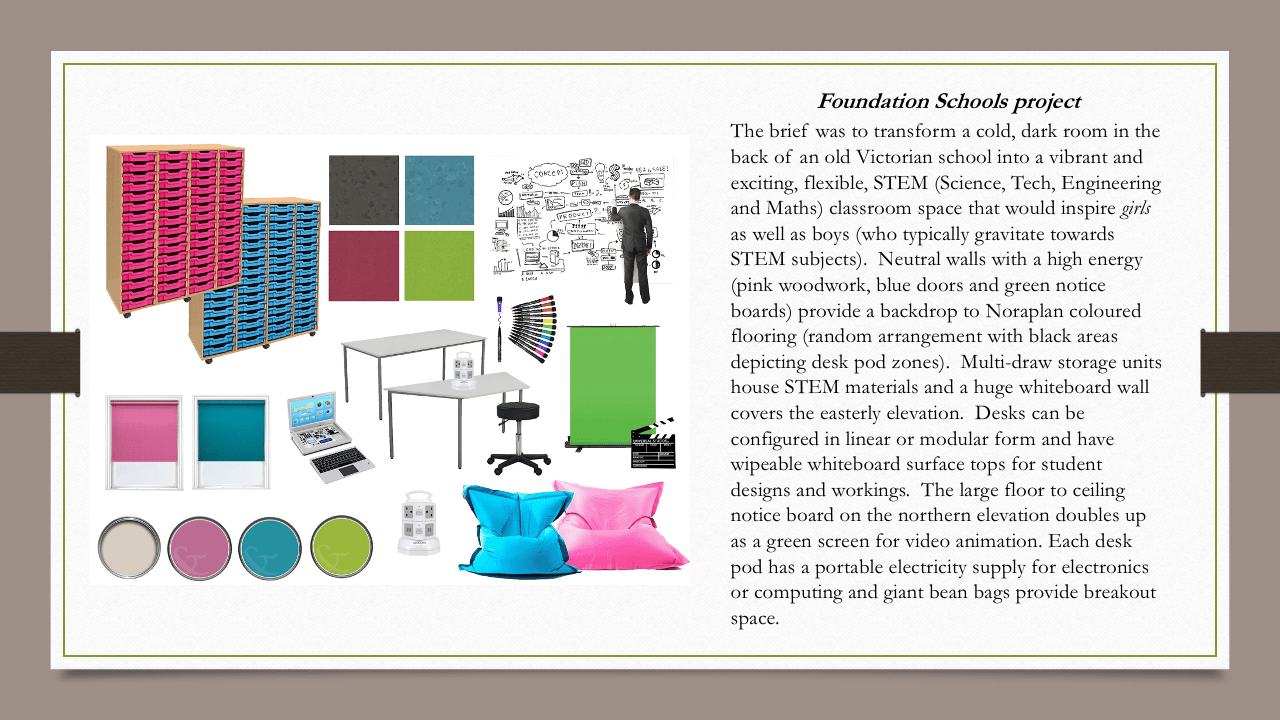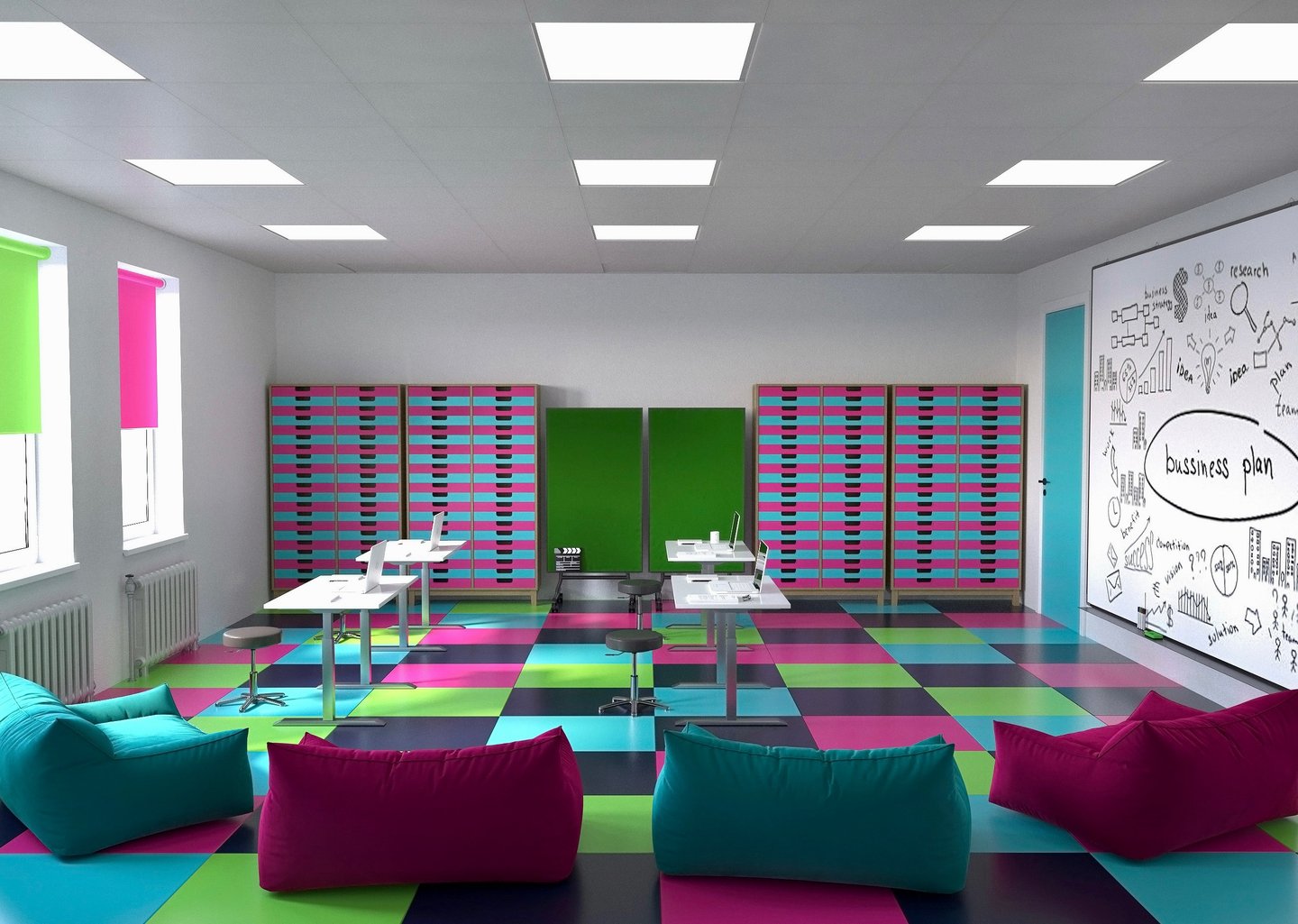
IMAGINARIUM is a Not For Profit Organisation.
All profits from mainstream commissions are directed towards the IMAGINARIUM Foundation where they are spent on creating amazing spaces for people who really need them.
With most of our lives spent indoors, the spaces we occupy play a major role in our behaviour. The discipline that explores this interaction between people and the spaces they inhabit is called Environmental Psychology.
The way we feel shapes the way we behave and how we feel and behave impacts upon every single aspect of our lives, from our relationships with others, our physiological health, cognitive ability, creativity, states of rest and arousal, to our mental health, happiness and wellbeing.
It is possible therefore, to condition the way we feel and behave through clever, science-based design. We are now able to design interiors with the ability to promote learning and enhance productivity, to induce calm, to energise and to motivate. Clever ‘Designology’ has been applied to help ADHD groups to hone focus, to aid memory recall in dementia patients and within the arts, design and literary communities, to aide the creative thought process. It is even possible to engineer environments that can elicit appetite, counteract addiction and aid pain relief and recovery.
Why spaces matter so much…
How your incredible IMAGINARIUM commissions are changing the lives of others…

Here’s how we applied the laws of Spacial psychology to give the team at Leuchie House Respite Care, a Secret Garden themed Staff Room, where they could relax, recharge and socialize.


We're thrilled to announce the opening of our newly designed staff room, created with love and expertise by IMAGINARIUM Interiors who inspired this incredible transformation.
The vision was to craft a space that promotes wellness and relaxation for our team. Collaborating closely with our staff, balancing practicality with aesthetics and spatial psychology IMAGINARIUM devised a stunning ‘Secret Garden’ theme that brings the beauty of our grounds indoors.
Drawing on a deep understanding of the psychology of spaces and interior design, Katy incorporated elements designed to rest and refresh the body and mind, reduce stress, enhance team spirit and cohesion and boost energy.
“Colleen Scott, Communications Manager, Leuchie House”


A "Maker Space" STEM Classroom
An IMAGINARIUM Foundation Schools Project

